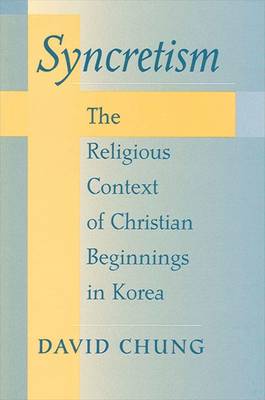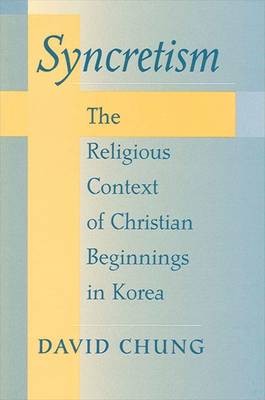
- Afhalen na 1 uur in een winkel met voorraad
- In januari gratis thuislevering in België
- Ruim aanbod met 7 miljoen producten
- Afhalen na 1 uur in een winkel met voorraad
- In januari gratis thuislevering in België
- Ruim aanbod met 7 miljoen producten
Omschrijving
Argues that a syncretic worldview encouraged the remarkable growth of Christianity in Korea.
This book explains the explosive growth of Christianity since its introduction into Korea in the eighteenth century. In no other Asian country has Christianity taken root so strongly.
Author David Chung argues that it was the syncretic tendency of Korean religious culture that provided the context for the successful acceptance of Christianity. Working from the perspective of comparative religions, he explores how Korean society accommodated and assimilated religions of foreign origin, such as Confucianism, Taoism, Buddhism, and Christianity through crude equation and subtle identification of these religions with Korean indigenous beliefs. Fundamentally shamanistic, Korean society received and grafted these religions onto its own and made a remarkable tapestry of beliefs, rites, and values into a comprehensive pattern. Syncretism finds this "religious tapestry" or internal chemistry working between Korean and Christian worldviews.
Specificaties
Betrokkenen
- Auteur(s):
- Uitgeverij:
Inhoud
- Aantal bladzijden:
- 278
- Taal:
- Engels
- Reeks:
Eigenschappen
- Productcode (EAN):
- 9780791449424
- Verschijningsdatum:
- 19/04/2001
- Uitvoering:
- Paperback
- Formaat:
- Trade paperback (VS)
- Afmetingen:
- 150 mm x 228 mm
- Gewicht:
- 381 g

Alleen bij Standaard Boekhandel
Beoordelingen
We publiceren alleen reviews die voldoen aan de voorwaarden voor reviews. Bekijk onze voorwaarden voor reviews.









